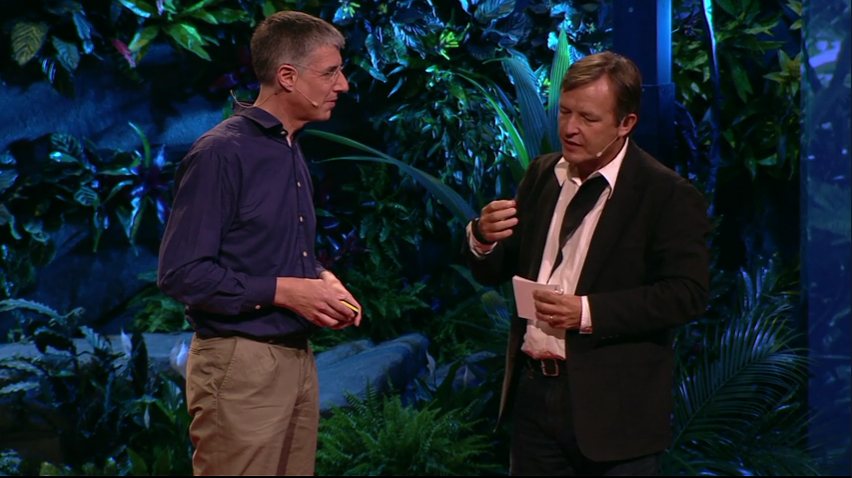Quick question for you, Dan. So you're a movement -- (DW: Chauvinist.) -- chauvinist.
我问一个简短的问题。所以你是一个运动--(沃:沙文主义者。)--沙文主义者。
Does that mean that you think that the other things we think our brains are about -- the dreaming, the yearning,
是不是意味着你认为我们觉得让大脑有存在意义的其他事情--那些梦想、渴望、
the falling in love and all these things -- are a kind of side show, an accident?
恋爱等等一切东西都是些余兴节目或者意外收获呢?
No, no, actually I think they're all important to drive the right movement behavior to get reproduction in the end.
不,不,其实我认为这些也很重要,它们能促使合适的动作行为,以达到繁殖的最终目的。
So I think people who study sensation or memory without realizing why you're laying down memories of childhood.
所以我觉得有些人在研究感觉或者记忆,却没意识到为什么我们要记下童年的回忆。
The fact that we forget most of our childhood, for example, is probably fine, because it doesn't effect our movements later in life.
我们会忘记大部分幼年的记忆这个事实,比如说其实应该无关紧要,因为那些不会影响我们长大以后的动作。

You only need to store things which are really going to effect movement.
我们只需要存储能对动作产生真正影响的事情就行了。
So you think that people thinking about the brain, and consciousness generally, could get real insight by saying, where does movement play in this game?
那你是否认为人们研究大脑,以及更笼统的意识,如果要获得真正的领悟,就要问动作在这里起了什么作用?
So people have found out for example that studying vision in the absence of realizing why you have vision is a mistake.
人们已经发现,比如说在不明确视觉何以存在的时候,就去研究视觉是个失误。
You have to study vision with the realization of how the movement system is going to use vision.
研究视觉的时候,我们必须先意识到运动系统要怎样用这个视觉。
And it uses it very differently once you think about it that way.
这样想的时候用法就不一样了。
Well that was quite fascinating. Thank you very much indeed.
哦,确很有趣。非常感谢你。












